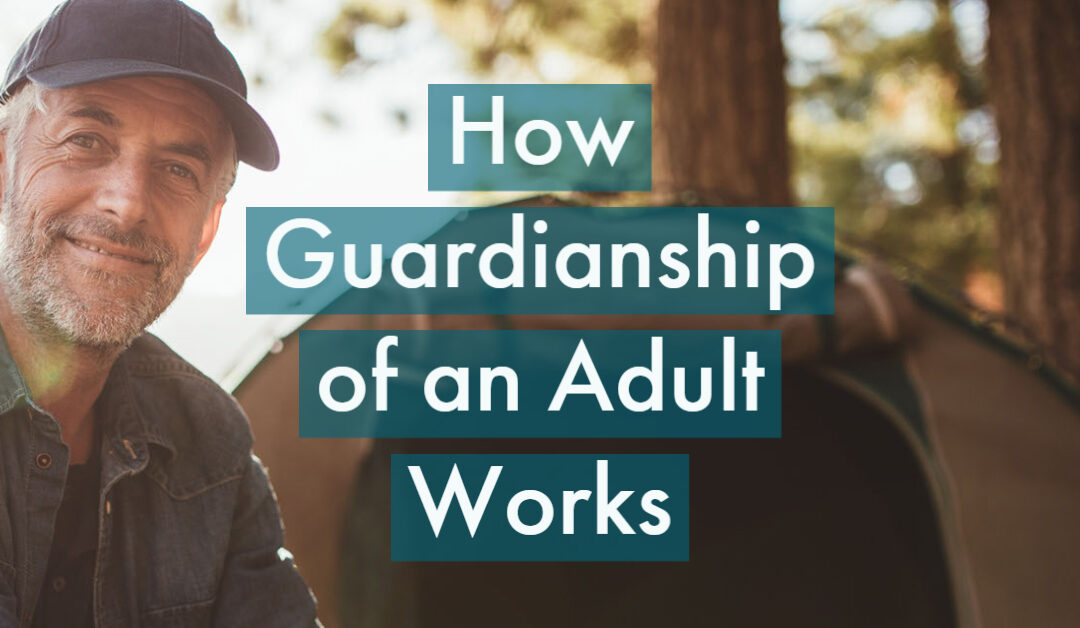Adult guardianship can be a necessary legal arrangement for those who need it, but it can also be challenging to understand as a guardian. This guide will help explain what guardianship of an adult is, the process for obtaining it, and the responsibilities of a guardian in NC.
What is Adult Guardianship?
Adult guardianship is a legal arrangement that allows a person to become the legal Guardian of an adult who cannot care for themselves. Their incompetence may come from illness, age, or disability. The guardianship process allows the Guardian to make decisions on behalf of the adult in question, called the “Ward.” These decisions may include their:
- Medical care
- Finances
- Assets such as real estate
- Where they live
- Mental health treatments
- Nutrition
- How they spend their free time
Because this is hard for some individuals, the Court may choose to allow a limited guardianship that only covers decisions the Ward needs help with but leaves other rights intact.
Types of Guardianships in NC
Based upon the abilities and needs of the Ward, the Court may appoint a:
- Guardian of the Person – This is a person that’s given authority over the personal care, residential, and medical decisions of a Ward. Think of this as power over everything except finances.
- Guardian of the Estate – This is a person given authority over finances, but not personal care, residential, or medical decisions.
- General Guardian – has combined power of “Guardian of the Person” and “Guardian of the Estate.” This person has general authority over all aspects of the person’s affairs except those prohibited by law. They also may not make decisions that require court approval in advance, such as sterilization procedures or selling real estate.
- Limited Guardian – has specified authority over a person. It may be limited to just certain facets of the person’s affairs, such as just medical decisions or just residential decisions. A limited guardianship is a court order customized to the Ward’s specific needs and limitations.
Obtaining Guardianship of a Loved One
The guardianship process can be lengthy and complicated, and it’s vital to seek legal advice if you consider becoming a guardian.
The first step is filing a petition with the Clerk of Court in the county where the person lives. Because of civil procedure rules and the amount of paperwork and inventory required, hiring legal counsel can ensure the best outcome for you and the adult in question.
You’ll need to bring medical proof and testimonies about why the adult in question needs a guardian. Preparing for the hearing with a guardianship attorney can help you find all the facts and evidence you need and present it to the Clerk of Court clearly and convincingly.
The burden of proof is on the petitioner to show that the adult in question needs a guardian.
Responsibilities of a Guardian
If you are considering Guardianship or are already a guardian, it’s essential to understand your responsibilities.
A guardian is generally responsible for:
- Ensuring that your loyalty and duty focus on the actual needs of the Ward
- Making decisions that ensure the well-being and health of the Ward
- Involving the Ward in decision-making as much as possible
- Striving to maximize the Ward’s involvement in decision-making
Guardianship lasts until:
- Adult in question can care for themselves
- Adult in care dies
- A court order ends the Guardianship (or you resign)
As a guardian, you are responsible for ensuring the adult in your care is safe and healthy and meeting their needs. Guardianship can be complicated, but it is a rewarding experience.
Handling Financial Management and Record-Keeping
Guardianships often include the authority to handle finances. If you have this authority, your additional work includes:
- Meticulous recordkeeping
- Careful accounting
- Fiduciary decision making
As a fiduciary guardian, every decision must serve the individual’s best interests, even if that individual lacks insight into why that decision is best for them. In other words, your financial decisions may not be popular, but being popular is not your job when you are a guardian.
You are an official of the Court once you take the oath to become a Guardian. The Court requires you to report what you do with the Ward’s assets annually. As a guardian, you must spend and manage assets appropriately. You may also need the Court’s permission for some decisions or actions in advance.
Resources Available to Guardians
Many resources are available to guardians, including support groups and online forums. These resources can provide valuable information and support as you care for your charge. However, the best support as a guardian or a petitioner is an experienced guardianship attorney who can advise you every step of the way.
We Can Help
At Hopler, Wilms, and Hanna, we pride ourselves on offering guardianship counsel at a price everyone can afford. We desire to partner with you in the legal issues of your life and help you find the best outcomes no matter what you face. As a guardian, your many duties to the Court may make life difficult. Bring us in to help with certain aspects of Guardianship or to handle all of your responsibilities with you. Contact us today to feel more confident about your role as a guardian.

